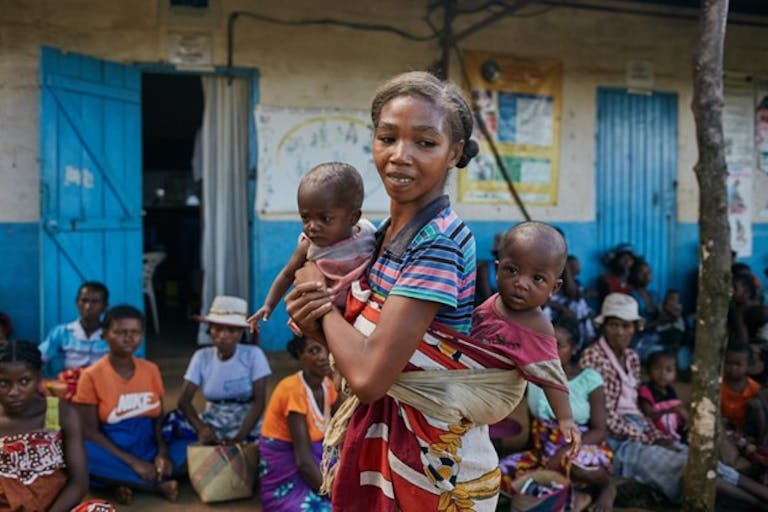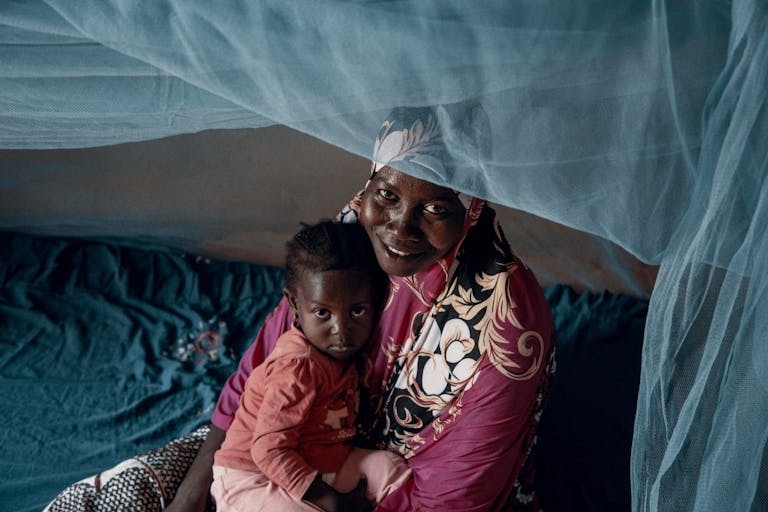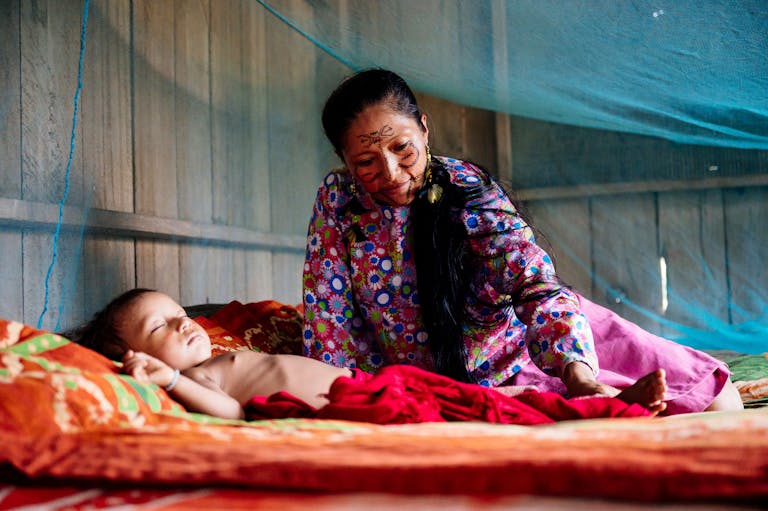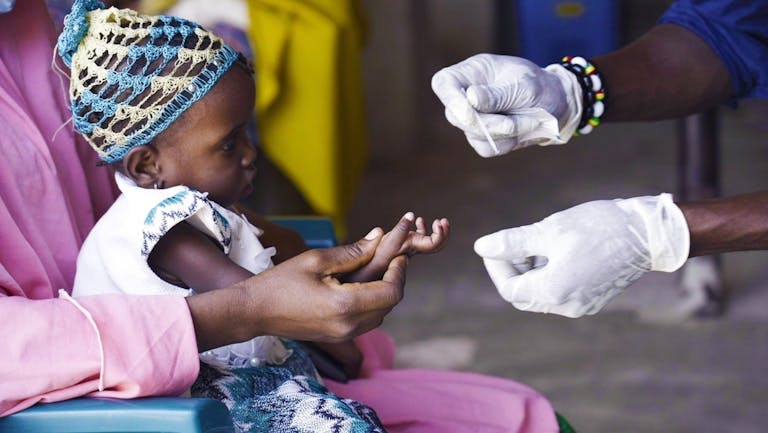Last updated April 24, 2023
Written by: Patty Sanchez Bao, Senior Officer for Global Health, United Nations Foundation
Each year, World Malaria Day offers a chance to reflect on the challenges and successes in the fight against one of the oldest and deadliest diseases in the world. In 2021, the World Health Organization (WHO) reported approximately 247 million malaria cases and 619,000 deaths worldwide, with 95% of the disease burden concentrated in the WHO African region. Today, a child dies from malaria in sub-Saharan Africa every minute.

The complexity of controlling malaria keeps mounting due to socio-political crises that impact the delivery of malaria services, climate change effects on human displacement and mosquito populations, and the rise of drug and insecticide resistance, which is reducing the efficacy of existing malaria tools, including insecticides, anti-malaria treatments, prophylaxis regimens, and rapid diagnostic tests.

Malaria is one of the most climate-sensitive infectious diseases. Since the early 1990s, research has shown a direct correlation between climate change and malaria transmission patterns resulting in an increased risk of malaria infection. Climate change has allowed mosquito populations to grow and develop faster, live longer, and survive in areas they previously could not, exposing more people to malaria. The latest Synthesis Report of the Intergovernmental Panel on Climate Change (IPCC) estimated that mosquitoes will spread diseases further than ever if climate change continues unchecked. By 2070, an additional 4.7 billion people could be at risk of mosquito-borne diseases like malaria and dengue fever.
Fazila, a 25-year-old midwife from Pakistan, provides a clear picture of the critical intersection between malaria and climate change. After being displaced from her village due to severe flooding, Fazila and her mother were confined to living in a tent in extreme heat without access to running water or means to protect themselves from mosquitoes. Nearly half of the patients in the health clinic where Fazila works test positive for malaria. According to WHO, Pakistan was on a successful path to control malaria transmission between 2015 and 2020, with a reported reduction in case incidence of more than 40%. In 2022, the effects of climate change set back years of progress, causing the largest malaria outbreak the country has faced in recent decades, with more than 1.6 million confirmed malaria cases, an increase from just 400,000 cases recorded the previous year.

According to the United Nations High Commissioner for Refugees (UNHCR), malaria remains one of the leading causes of morbidity and mortality among the world’s 103 million forcibly displaced people. In the coming years, climate change will continue to increase the demand for malaria services, adding pressure on underfunded malaria programs. By 2050, the Ecological Threat Register (ETR) report estimates climate-related events could displace more than 1.2 billion people.

As the global community has recognized climate change as one of the most critical risks to humanity, we must put the health concerns of the most affected populations to the forefront and prioritize addressing vector-borne diseases like malaria. This World Malaria Day, we call on the global community to deliver zero malaria through increased investment, innovation, and commitment to implementing the objectives of the Global Malaria Action Plan.
Patty Sanchez Bao leads the implementation of the Foundation’s advocacy, communications, and resource mobilization strategy to advance global support for malaria elimination in Latin America and the Caribbean. Patty has many years of experience working on advancing human development for indigenous communities, women, and other vulnerable populations. Patty brings particular expertise in international development, corporate social responsibility, public-private partnerships for poverty alleviation, knowledge management, strategic communication, and systematic monitoring and evaluation. She holds a master’s degree in Cultural Anthropology from the University of Virginia, a Licenciatura in Social Anthropology, and a bachelor’s in social sciences from the Pontificia Universidad Catolica del Peru.
To get the latest Global Health news from experts like Patty, subscribe to our monthly newsletter.